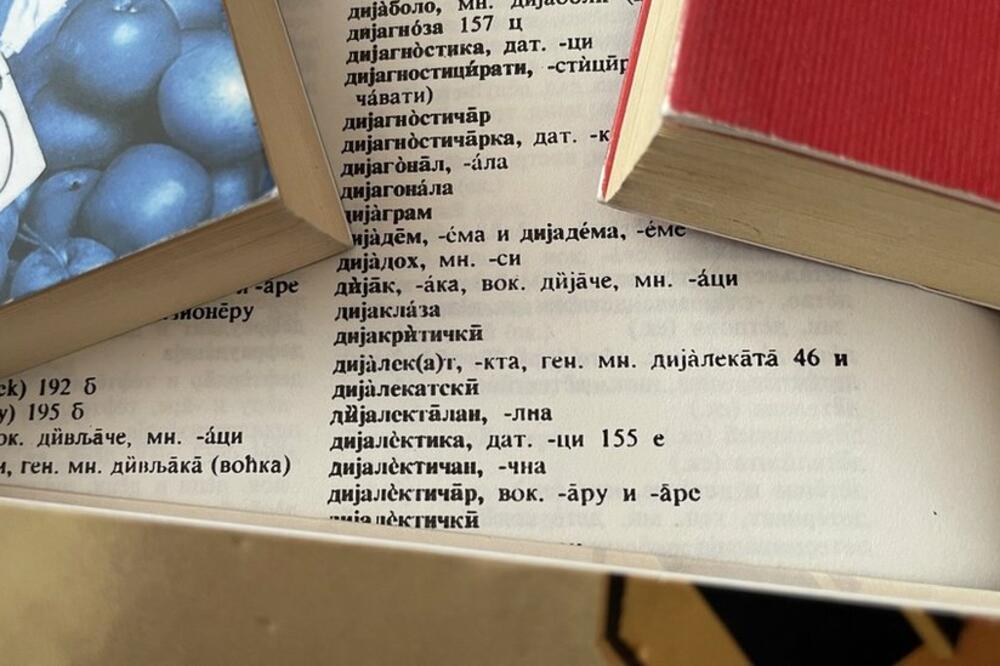"There is a shout in the alley, the people run, and in front of the people there is a picture, let's leave the house and the hoe, so we swear by that picture, and that picture doesn't even reach our head, let's forget about the glory of baptism, we will still pick skins on the spike, forgive me neither, God help me."
Although it seems that these verses are an "opportunity" of the current socio-political reality, it is a stanza from the poem "Slika" by Miroslav Cere Mihailović, written four decades ago in the Timočko-Prizren dialect.
"When I started to write in the dialect in the eighties, it was a challenge and an unexplored area," says the 69-year-old poet from Vranje, a city in the south of Serbia, for the BBC in Serbian.
"It was simply unacceptable not to engage in such an experiment."
This dialect of the Serbian language is spoken in a wide area of the extreme south, southeast and east of Serbia - from Prizren in Kosovo to the Timok valley in eastern Serbia.
It includes three dialect units and is used, among other things, by the inhabitants of Niš, Leskovac, Vranje, Prokuplje, Pirot and Svrljig.
- From "my legs hurt" to "dis' ti poš'o" - diversity enriches the Serbian language
- Pray in the original so that the whole world understands: Speak in the original so that the whole world understands you
- Who sings it and how: "Majanje" and "jir" in hip-hop songs in the Balkans
The roots of literature in the Timoč-Prizren dialect go back to the end of the 19th and the beginning of the 20th century.
Borisav Stanković, Stevan Sremac and Jelena Dimitrijević are some of the local writers in whose works, to a greater or lesser extent, you can come across southern speech.
"Today's writers in the dialect are lovers of the native language, people who, through their writing, fight for an equal place for their own dialect among works written in the standard Serbian language.
"They strive to preserve in their literary works a trace of what may change or disappear," Tatjana Trajković, a professor at the Department of Serbian Studies at the Faculty of Philosophy in Niš, told the BBC in Serbian.
Some of the most important prose works of literature in today's dialect are Arizani Ivan Ivanovic, Autumn i Ten'c Violeta Jovic, I'm still waiting for that word for him to say Negoslav Stanojević.
In poetry, collections of poems stand out He will fight his wife i Selo sas one case Vlaste Cenić, trilogy Salt on the wound Miroslav Cere Mihailović, Top for the sky Zoran Vučić and Bought a rooster Dragan Radović.
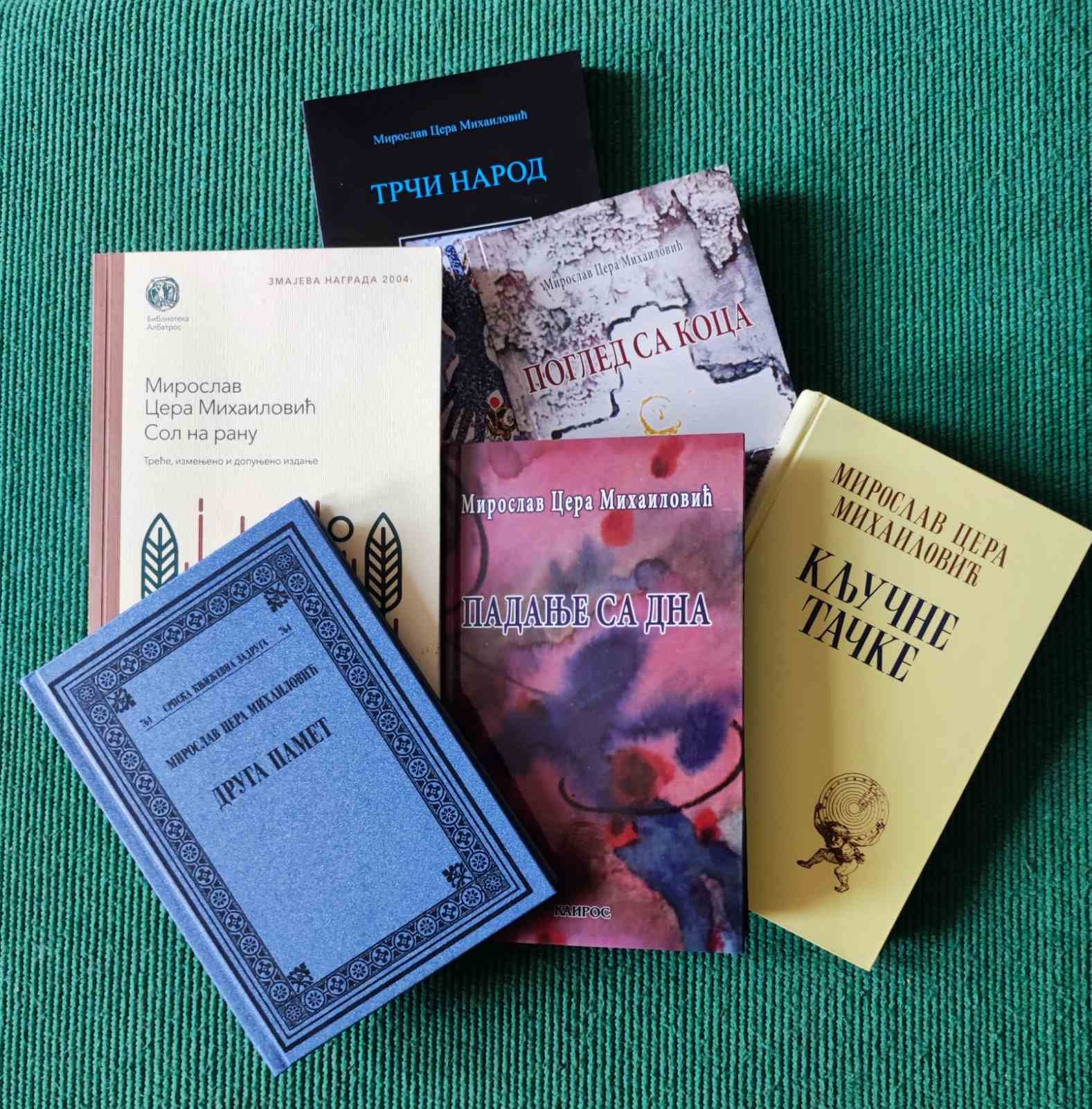
'Knife to the bone'
When Miroslav Cera Mihailović dared to publish the first texts in the magazine Literary word 1983, he was "very careful".
"I wanted to listen to the reaction of the public, cultural and literary, and it met with a good response," says the poet from Vranje, one of the pioneers of dialect literature in Serbia.
Regardless of the potential risks, he says, "it was unacceptable not to take advantage of the inexhaustible wealth offered by this speech, especially the Vranje variant, as one of the oldest preserved Old Slavic speech".
He opted for this approach, among other things, because "the local language can say what the standard language cannot".
"A lot of things that embody the characters of the heroes, the special philosophy of life and the spirit of people from the south, characterology, toponymy - it's a very complex procedure and a lot of care must be taken, if a person is serious about it," Mihailović believes.
Encouraged by the first reactions, Mihailović continued to create in the southern dialect, so in the following decades he published several collections of poetry such as Broom for the house, Svrtka u Nesvrtu i The end will tell.
In 2004, he combined these three parts into a trilogy called Salt on the wound, for which in the same year he received the prestigious literary Dragon Award for the best book of poetry.
He is currently working on the fourth part Knife to the bone, and the first novel with a working title is also planned A book for close company, which will be partially in the dialect.
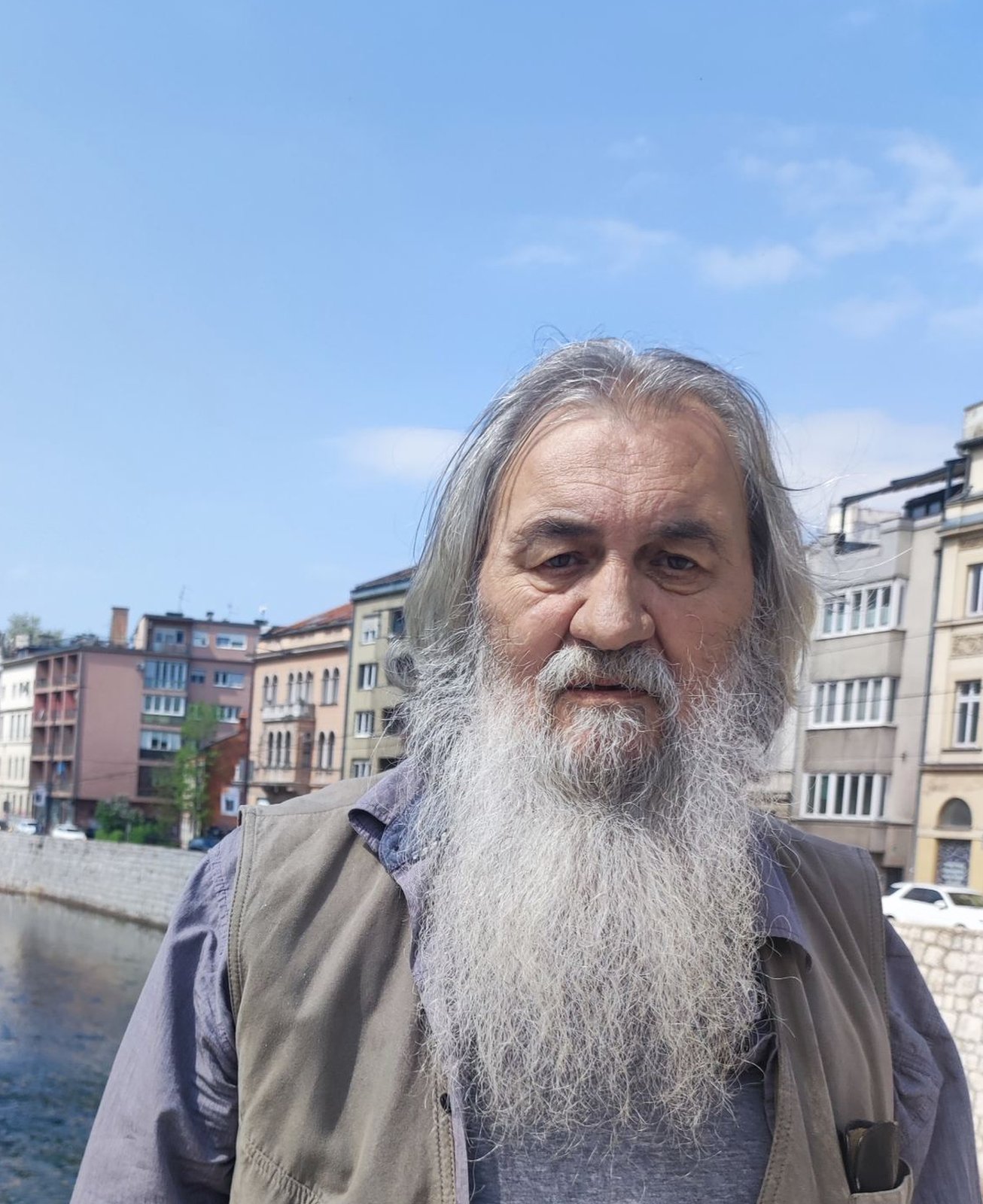
Autumn, winter and winter
Part of Violeta Jović's literary work consists of stories and novels written in the Svrlji-Zaplanja variant of the Timoč-Prizren dialect.
"I didn't start out of fashion or fad, it's my mother tongue, which I learned first, that's how I talk to my mother and the neighbors of my village Mečji Do near Svrljig," the writer told the BBC in Serbian.
He sees the dialect as something "the most intimate and closest of which he is not ashamed", and writing in it as "a completely natural need".
"And for this very reason, I decided to try to record some stories because there are wonderful people, landscapes and words in that speech that can only describe certain things."
- The Rosetta Stone: How a Chance Discovery Led to the Decipherment of Hieroglyphs
- Language from the end of the world
- A stunning South African language spoken in 45 clicks
- The sexiest accents in the world
The first novel in dialect Autumn, Jović published two decades ago.
Osenja is an apparition in the form of a girl in white who, according to belief, appears at night on bridges or by the side of the road, such as at the turn for the village of Jelašnica near Knjaževac in eastern Serbia.
Unlike her colleagues, the debut album did not receive a positive reaction from literary circles.
"It was 'what is she doing, what is she trying to do, is she making a literary name in non-literary speech, it's peasant, Svrlji slang'.
"I absolutely did not care, because I never had the intention to build a literary name and to be superior to anyone," explains Jović.
This attitude, she adds, was also recognized by her readers, who often enthusiastically contact her with comments such as "you reminded me of some words, brought me back to my childhood, I cried all night, that's what my grandmother used to say".
The literary oeuvre in the dialect of Violeta Jović includes, among other things, novels No less, Ten'c (Vampire), There are no books i Transfiguration, as well as story collections Tika's grandfather i Dume for every day.

Insufficient representation in media, textbooks, literature
Literature in dialect distinguishes the language used by the writer in creating his own work, according to professor Tatjana Trajković.
"That's where its authenticity lies, its identity element that we all need, including the literary work," he adds.
Writing in a dialect gives the writer the possibility of "complete freedom in expression and sincere expression of thoughts and feelings", establishing close contact with the reader.
"Although these works always appeal to the public and have readers, they still do not have the deserved popularity among the general public and representation in the media, textbooks, and literature," Trajković believes.
Everything boils down to the mention of Bora Stanković and Stevan Sremac, he adds.
However, things have changed in recent years, and there are more and more writers, poets and books in the Timoč-Prizren dialect.
"These writers have a strong sense of responsibility towards the native language they grew up with, and they want to repay it by maintaining it as long as possible through writing.
"There are more and more such authors, which tells us about the sure duration of literature from this dialect climate," claims Trajković.
- How literacy developed in Serbia
- Serbian language at colleges - need or profit
- How much do we (not) know about Vuk Karadžić
In addition to the Timočko-Prizren dialect, works and passages in other dialects of the Serbian language, such as Šumadija-Vojvodina or Kosovo-Resava, are sporadically found in local literature.
"Some of our monumental works, such as Gorski vienci i Petria's Wreath, are dialectally marked, and folk oral literature also has dialectal characteristics, even our first dictionary Serbian dictionary Vuk Karadžić," adds the professor.
Doljevac literature in the dialect for children
Vlasta Cenić, a retired professor of the Serbian language, entered the poetic waters in 1987, the year of the jubilee - two centuries since the birth of the reformer of the Serbian language, Vuk Karadžić.
Traveling through the villages of the municipality of Doljevac, near Niš, with the ethnological section that he formed with the students, he collected lyric poems written in the vernacular of southern Serbia.
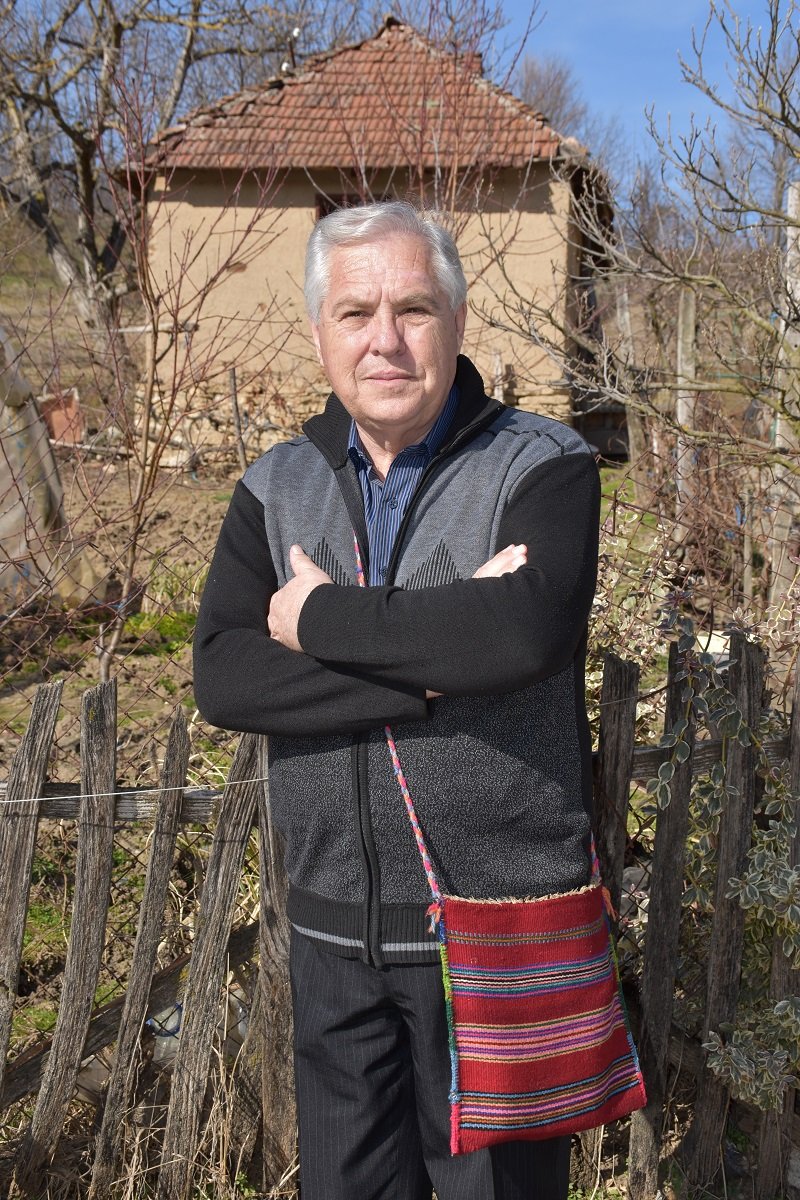
"I wanted to show Vuk, who was not in these parts, our language, melodious and specific with accents and some old words that sound beautiful and radiate," Cenić told the BBC in Serbian.
He published the first collection of poetry for children Straps, written in the South Moravian, Leskovac variant of the Timoč-Prizren dialect.
An extended version was published in Niš in the mid-nineties, under the name He will fight his wife, after the song of the same name that marked Cenić's poetic career.
He visited many libraries in Serbia with the program "Bate ja se zeni u selo sas jedan padež", which he named similarly adding the title of his second book.
"I was also in the north, as far as Sombor, where the children didn't understand every word, but they felt the melody, dynamics and warmth - that language of the south comes everywhere," says Cenić.
Dialect and folk speech, he says, "we have to preserve because it is our birth certificate and identity card, which, if lost, breaks ties with origin and identity".
"It's modern times and the new generations don't understand every word, but we have to bring them at least a little closer to that, so that they don't disparage that speech, don't call it peasant and don't make fun of it, as many do."
- Dositej Obradović: Enlightener and "back-packer" from the 18th century
- Đura Daničić: The man who tamed the folk language into modern grammars
- Vujaklia's lexicon as a "symbol of the home that holds to literacy"
Doctoral dissertations and market studies
Miroslav Cera Mihailović's poetry is on the pages of school textbooks, it is the subject of seminar papers at faculties, and even a doctoral dissertation at the Humboldt University in Berlin was defended on this topic, the poet claims.
"It turned out, despite all my expectations, that it has some effects that no one could have guessed when I started working," adds Mihailović.
One of the biggest problems facing southern speech, according to him, is that "it is experienced as a means of entertainment and achieving humorous elements" through television series and programs.
"It's a much more complex story and it's just the opposite. How much wisdom was expressed in that speech, the sentences, studies could be written about it."
Violeta Jović is also bothered by the way the speech and people from her area are shown on television.
"It's mostly some half-world, market matrapazis, as my Svrlji residents say, who have a cheap and simple sense of humor.
"Then all of this is linked to the south, that we are people who are not up to modern trends, simple, unlived, small-towners, which is not true at all", assesses the general secretary of the University of Niš.
That speech, he says, "is both for happiness and for sadness, and it is not just a joke and a joke, but very serious topics and situations can be said in that language".
"In the beginning, we worked timidly, but now we realize that this is a value recognized by science, which is very important," Vlasta Cenić believes.
In Serbia, there are also several festivals of dialect literature and creativity in the vernacular, such as Leskovac's "In the Rhythm of the Dialect" and Niš's "Transfiguration Chanting".
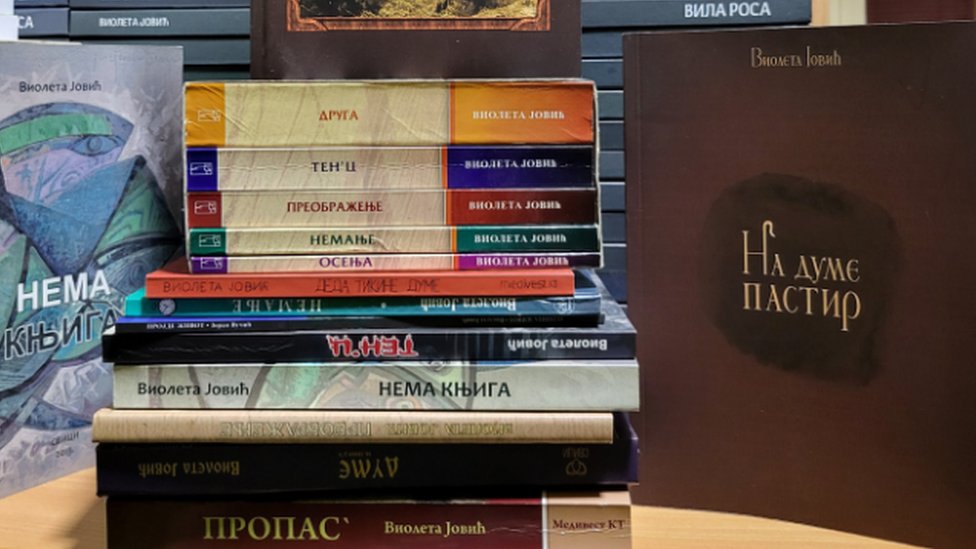
Ducat on the tongue
What is the future of dialect literature? Mostly unpredictable.
Mihailović says that "the language is constantly changing and developing", so the people of Vranje do not speak as they did a few decades ago.
But the spirit of the language still lives on, as well as the local expressions that, admittedly, the youth mostly do not know.
"Preserving a few words as a ducat in the language, an ornament, a flow, a diamond that is carbon because it had patience, and that also applies to language," concludes writer Violeta Jović.
Although "technique is swallowing world languages" and "the vernacular language is losing the battle before the onslaught of anglicisms, jargon and pictorial expression of the young", Vlasta Cenić believes that "the dialect will not disappear" and that it will at least "remain recorded in those precious books".
"At a minute to 12, the army of people who preserve the dialect woke up, became active and, dealing with that literature, frantically managed to extract some beautiful words from the ashes.
"And don't let them go out of business," concludes Doljevčanin.
Follow us on Facebook, Twitter, Instagram, YouTube i Viber. If you have a topic proposal for us, contact us at bbcnasrpskom@bbc.co.uk
Bonus video:



